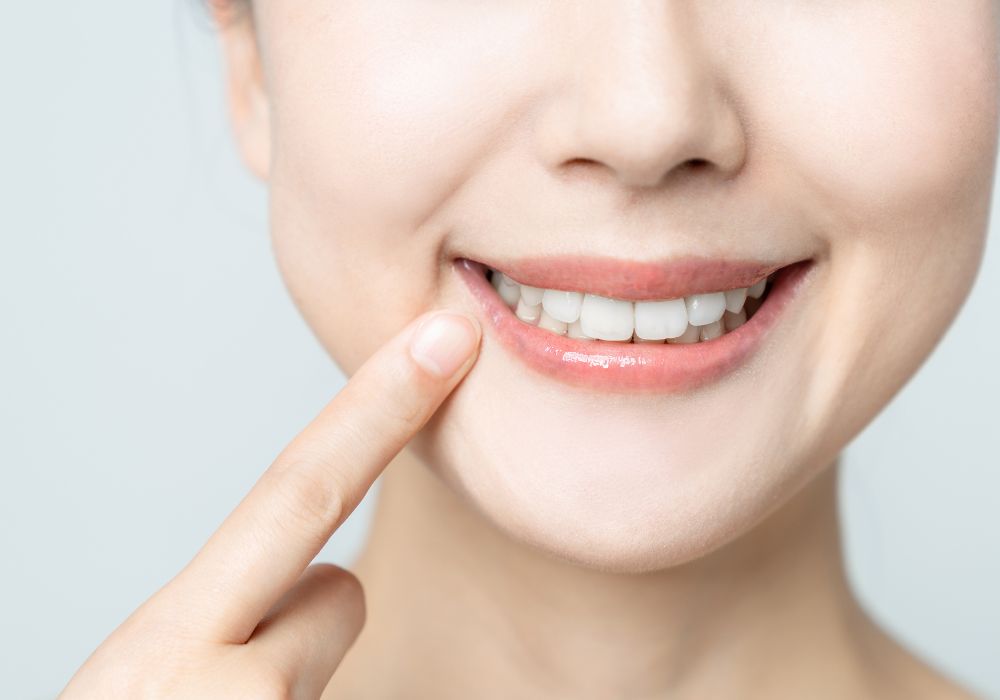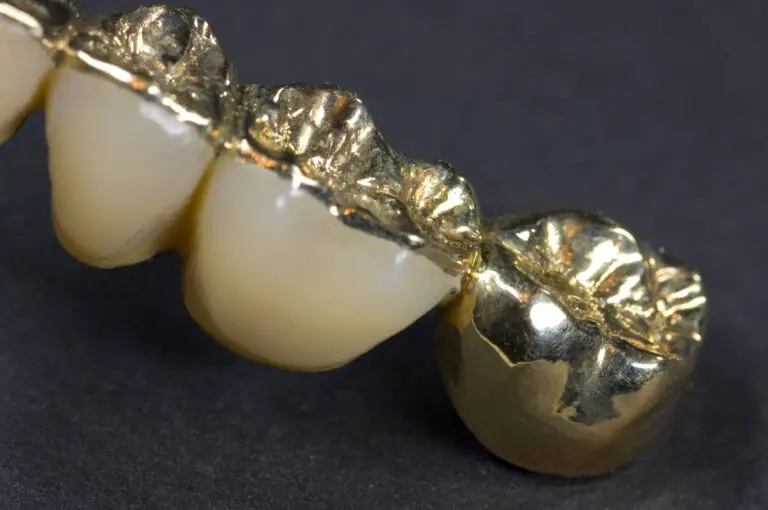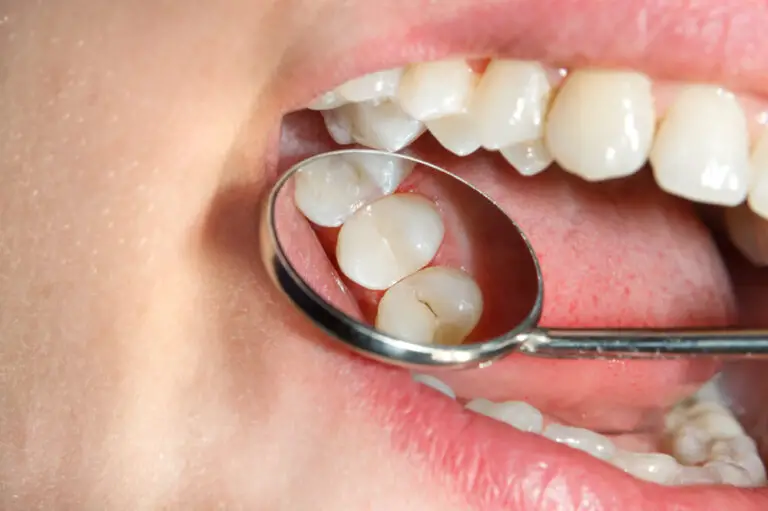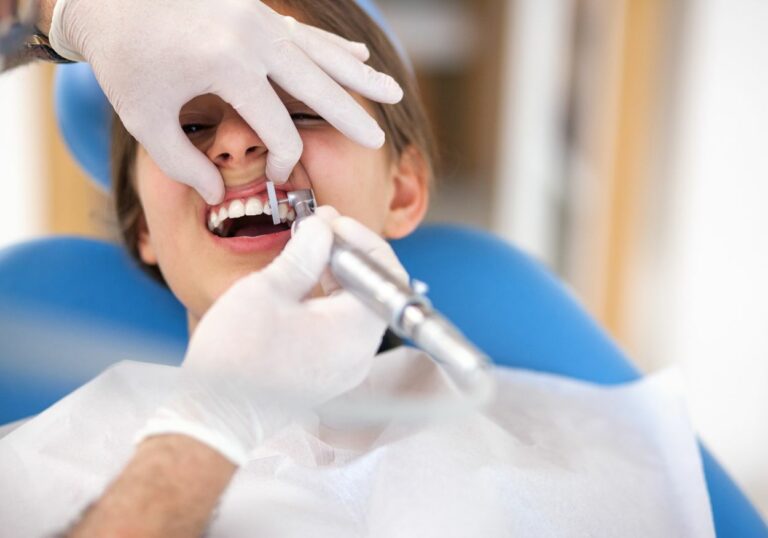Pressing or pushing the tongue against the bottom teeth is an incredibly common oral habit. While often an unconscious behavior, it can become a compulsive tic for some people. This article takes an in-depth look at the possible causes behind teeth-pressing habits and consequences it may have if excessive.
Potential Triggers and Causes
There are a number of different factors that can trigger or reinforce this teeth-pressing habit:
Stress and Anxiety
For many people, anxiety and agitation are one of the most common triggers. Pressing the tongue to the teeth can provide a soothing, self-calming effect for nervous energy. The pressure and repetitive motion help relieve tension in a similar way to chewing gum or biting fingernails. It becomes an unconscious fidgeting outlet for stress.
Those with general anxiety disorder, phobias, trauma, OCD, and high-stress personalities seem especially prone to developing compulsive oral habits like teeth pressing or nail biting. The behavior may worsen during times of heightened emotion or panic.
Chewing and biting motions release endorphins in the brain that have a mildly calming effect. This gives temporary relief but reinforces the habit. It becomes a self-perpetuating cycle.
Boredom and Mindlessness
Teeth pressing often occurs while idle, bored or trying to concentrate. It is an unconscious mindless habit, similar to clicking a pen or jiggling a leg. The sensation gives a distraction and activity to keep busy hands and mouth occupied.
Many peoplereport doing it most frequently while reading, watching TV, working at a desk, or stuck in traffic when idle. It satisfies an oral fixation and restless energy.
Oral Fixation
Related to pacifier use in infants, oral fixations refer to a compulsive need to keep the mouth occupied. This emerges as habits like nail or cheek biting, teeth grinding, pen chewing, and lip or tongue pressing. Sucking, chewing, and biting motions are ingrained from nursing in infancy as soothing behaviors. They continue unconsciously into adulthood.
Pressing the tongue against teeth allows an oral stimulation and satisfaction of this sensory need. It may temporarily alleviate anxiety for those with a strong fixation.
Speech or Tongue Position Problems
A constant thrusting of the tongue against the teeth can sometimes originate from impaired speech or tongue movements. Those with conditions like Down syndrome, cerebral palsy, or autism that affect oral-motor control may habitually rest their tongue between teeth or clench due to positioning difficulty.
Improper tongue position from conditions like tongue-tie can also facilitate forward thrusting. Those with speech issues like lisping may use teeth pressing to try to correct impaired articulation. This generally exacerbates the problem.
Dental Factors
Dental problems like misaligned bites, teeth spacing issues, and oral discomfort are also common reasons for tongue pressing habits.
Those with crooked teeth, crowded mouths, or gaps often unconsciously use tongue pressure to fit the tongue into a more comfortable resting position. Those with dental sensitivity or pain may press the tongue against sore areas hoping to numb or massage irritation.
Bruxism and teeth grinding, especially at night, can also cause people to probe and massage their teeth with the tongue for relief. Orthodontic treatment or bite correction may help eliminate some of these dental triggers.
Neurological Causes
Repetitive and compulsive oral habits like tongue pressing are common symptoms of some neurological conditions like Tourette syndrome. They may manifest as one among many involuntary motor or vocal tics.
Obsessive compulsive disorder can also facilitate compulsive oral habits. Individuals may feel unable to stop teeth grinding, nail biting, lip chewing, and tongue thrusts without anxiety or stress.
Autism spectrum disorders, sensory processing disorders, and ADHD may also incline some individuals toward oral stimulation and habitual teeth grinding or tongue behaviors.
Adverse Effects of Excessive Teeth Pressing

If the tongue pressing habit is done forcefully or excessively throughout the day, it can potentially cause some adverse dental side effects:
- Tooth wear and damage – Repeated force and friction against the teeth over time can lead to chipped enamel or exposed dentin. Tongue jewelry like piercings risks even more rapid scratching and abrasion of tooth surfaces.
- Increased tooth decay risk – Worn enamel is more vulnerable to cavities and decay. Pressing the tongue against teeth also increases acidic saliva contact time.
- Gum recession – Pushing the tongue against the gums repeatedly can gradually displace them from the teeth, exposing sensitive root surfaces prone to cavities. This also causes further irritation.
- Increased dental plaque – The tongue naturally collects oral bacteria on its surface. Increased pressing spreads more plaque, especially between lower teeth. This irritates gums and requires more diligent hygiene.
- Jaw problems – Chronic clenching and thrusting leads to strained muscles of mastication, TMJ inflammation, and soreness. This is exacerbated by simultaneous teeth grinding.
- Speech issues – A forward tongue rest posture between syllables affects articulation of sounds like ‘s’. Lisping, blurred speech, and other impediments may develop.
- Occlusal changes – Prolonged pressure on some teeth can shift their alignment. This may cause bite changes, crowding, spacing, or overbites needing orthodontic correction.
- Headaches – Bruxism, TMJ disorders, and jaw clenching associated with forceful oral habits can all result in frequent headaches and migraines as well.
Thus, steps should be taken to curb excessive oral habits before dental complications arise. Mild occasional pressing causes little harm.
Professional Treatment Options
If tongue thrusting, teeth grinding, or jaw clenching become severe enough to cause dental or medical problems, several professional intervention options exist:
- Dentists – Can assess tooth damage, sensitivity, and bite changes. They may grind down sharp edges or fit guards to protect teeth from abrasion during grinding.
- Orthodontists – Can correct bite alignment and crowding issues caused by habitual tongue thrusting or teeth grinding. They also provide oral appliances like Invisalign that curb habits.
- Physical therapists – Help strengthen jaw and neck muscles, improve mouth posture, and reduce associated pain. They instruct specific tongue exercises.
- Speech therapists– Work on correcting tongue positioning that affects articulation and swallowing. Teach oral motor control exercises to stop teeth grinding and thrusting.
- Behavioral therapists – Cognitive behavioral therapy helps identify triggers for oral fixation habits and strategizes methods to control them.
- Medication – Antidepressants, muscle relaxants, or antianxiety drugs may reduce bruxism and compulsive habits in some individuals, under a doctor’s care.
Multidisciplinary treatment is ideal for addressing all facets of longstanding oral habits – dental, medical, speech, and psychological.
Tips to Break the Habit

For milder cases, the following self-care approaches can help reduce excessive teeth pressing:
- Use mouthguards, braces, or bite splints that block forceful pressing and protect teeth from wear.
- Find oral substitutes like sugarless gum, hard candies, or chew toys to satisfy the fixation in a less damaging way.
- Manage anxiety and stress through counseling, CBT, meditation, or calming hobbies to reduce unconscious habits.
- Relax jaw muscles frequently via warm compresses, massage, and stretching to avoid clenching.
- Improve posture and jaw alignment to allow teeth to rest naturally without the tongue forcing space.
- Identify triggers like boredom and find alternate fidget outlets when urges occur, such as squeezing a stress ball.
- Use reminders and motivational tools to build conscious awareness of the habit so it can be controlled.
With diligence and addressing underlying factors, improvement is possible. However, longstanding habits may warrant professional dental or psychological support as well.
When Tongue Pressing May Be Recommended
While typically adverse, in certain situations a doctor or dentist may encourage limited, gentle tongue pressing against teeth:
- Braces adjustment – After a tightening, light pressing helps seat wires into new positions and allows teeth to settle.
- Tooth eruption – Infants may press tongues against erupting teeth to relieve discomfort. This is normal.
- After oral surgery – Instinctively, patients often apply light pressure to surgery sites to manage initial healing discomfort.
- Post dental procedures – The tongue may massage areas like after enamel etching or periodontal surgery to desensitize tenderness.
- TMJ treatment – As part of physical therapy, patients may be instructed to do light teeth clenching or pressing to strengthen jaw muscles.
- Speech therapy – Certain oral motor control exercises involve pressing the tongue to the roof of the mouth or behind the teeth.
These situations require monitoring for adverse effects. Habits should discontinue once recovery occurs or treatment concludes so as not to risk dental complications.
Questions and Answers
Q: Are tongue thrust habits more common in children or adults?
A: Tongue thrusting is most prevalent in children, originating from infant sucking patterns and developing swallows. But oral habits often persist unconsciously into adulthood as well, when stressful triggers are present.
Q: Can tongue thrusting affect or cause an overbite?
A: Prolonged forceful thrusting of the tongue against lower incisors can potentially encourage an anterior open bite by pushing teeth back. This open bite effect on the lower jaw can then lead to a relative overbite.
Q: Does tongue thrusting happen during sleep too?
A: Most tongue pressing occurs while awake, providing oral stimulation or handling stress. But some people do unconsciously maintain a forward tongue posture while sleeping as well, especially children and mouth-breathers. Teeth grinding is more common during sleep.
Q: Can tongue thrusting affect speech?
A: A constantly forward, low tongue posture between syllables can affect the pronunciation of lingual sounds like ‘s’ and ‘th’. Speech therapy to correct resting tongue position may be needed to improve articulation.
Q: Is tongue pressing a sign of anxiety?
A: Habitual tongue pressing is not necessarily diagnostic, but in many people it can serve as an unconscious physical outlet for anxiety. Addressing underlying stressors often helps reduce the compulsive habit.
Conclusion
In summary, while a common and typically harmless habit, pressing the tongue against the bottom teeth can become a detrimental oral fixation if excessive force or frequency is applied. Multifactorial triggers like dental discomfort, speech impediments, neurologic conditions, boredom, and especially anxiety may all play a role in its development.
Gentle, occasional tongue pressing causes little concern, but chronic habits can damage teeth, strain jaw joints, and affect alignment and speech. Dental, psychological, and speech treatments may be warranted in severe cases. Conscious habit control and addressing root causes can help curb long-term teeth pressing and thrusting behaviors.







